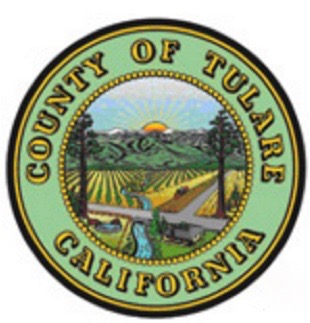National Beef Rejects General Offer from Community, Still Plans to Close
NATIONAL BEEF WILL CLOSE, LEAVING BRAWLEY IN A LURCH
Source: Lloyd Miller, The Desert Valley Review
The Imperial Valley Ad Hoc Committee met on February 21st to inform the public that after three weeks of proposals with National Beef, the processing plant chose to continue with their April 4th closing date.
Ryan Kelley, supervisor district 4, was the spokesman of the committee present. Others were Don Wharton and George Nava of the Brawley City Council, Matt Dessert, Imperial Irrigation District director, and cattlemen Bill Plourd of El Toro Exports and Bill Brandenburg, Meloland Cattle Company, absent was Paul Cameron of Mesquite Cattle Feeders.
Kelley mentioned that National Beef never gave any figures they had to have to stay, but said they had lost many millions of dollars yearly at the Brawley plant.
Bill Plourd said the cattlemen met many times, with the ad hoc committee and with all the Imperial Valley Cattle Feeders. Last January 2013, the feedlots had agreed to a reduction of $15 million, on top of that they promised another $9 million reduction in prices.
“We have to be competitive, too. We buy cattle, we have to buy feed. To be successful and continue attracting customers there has to be a profit. Otherwise our customers will leave and ship their cattle where they can make money,” Brandenburg explained to the room.
Matt Desert said they cut their electrical rates to the historical contract that they had given when the plant first opened. This totaled $2.1 million in savings.
Wharton said the city of Brawley spent many hours combing through rates looking for ways to save the plant.
George Nava said that there was still reason to hope. “The door isn’t closed completely. It may just be a crack, but it is still open. We will continue our dialogue with National Beef CEO Terry Wilkinson in Kansas City, Mo. and chief financial officer Simon McGee.” He also added that National Beef did go from saying the plant would be moth-balled, to they would consider any reasonable offer.
Kelley said, “If you know of anybody interested, give me their name. I’ll call them.”
Plourd said that the cattlemen would now adjust their herd size. Many had recently expanded to meet the needs of the market, but now would downsize until the market reached its equilibrium.
Brandenburg added that through all of this the cattlemen remained united in trying to save the cattle industry and this would reverberate all through California, not just the Imperial Valley.
“We have clients that buy bull calf Holsteins from dairies and now that market is disappearing.
Ryan said that they wanted to give special recognition to Senator Ben Hueso and Assemblyman Manuel Perez and how they made calls and met with local officials. In the end, the State of California didn’t move in their regulations.
“In fact, the state didn’t seem to care,” Ryan said.
“But the cattlemen, they did not shy away. They gave their all.”
National Beef released this statement on February 21, 2014:
National Beef would like to thank the City of Brawley, Imperial County, the State of California, the regional cattle feeding industry and other community leaders that participated in developing and submitting a proposed incentive package in an effort to keep our Brawley processing facility open. The response was quick, thoughtful and well organized across many agencies. We have listened to the feedback and are grateful to all who were involved in the effort to support the continued operation of the facility.
We have considered all of the alternatives, but unfortunately, the barriers to profitably operate the facility continue to exist. Even with the proposed incentive package, the declining supply of fed cattle available for the Brawley facility remains the key driver of our decision to close the plant.
“We truly regret the impact this may cause to our employees. Their loyalty and dedication has been remarkable, and we will be offering assistance to help them transition to other opportunities,” said Tim Klein, chief executive officer, National Beef.
National Beef will continue to operate through this transition period until the last day of production, which is currently anticipated to be April 4, 2014.
We are a leading American beef supplier dedicated to providing fresh, chilled and further processed beef and beef by-products for our customers. Our focus is to expand our branded boxed beef, case ready beef, portion control beef and wet blue leather businesses to continue to meet and exceed the growing needs of our customers.
National Beef® has grown from a single beef plant in 1992 to the fourth largest beef processor in the U.S. Our goal is to ensure that our customers have the tools they need to drive their own growth in the marketplace.









